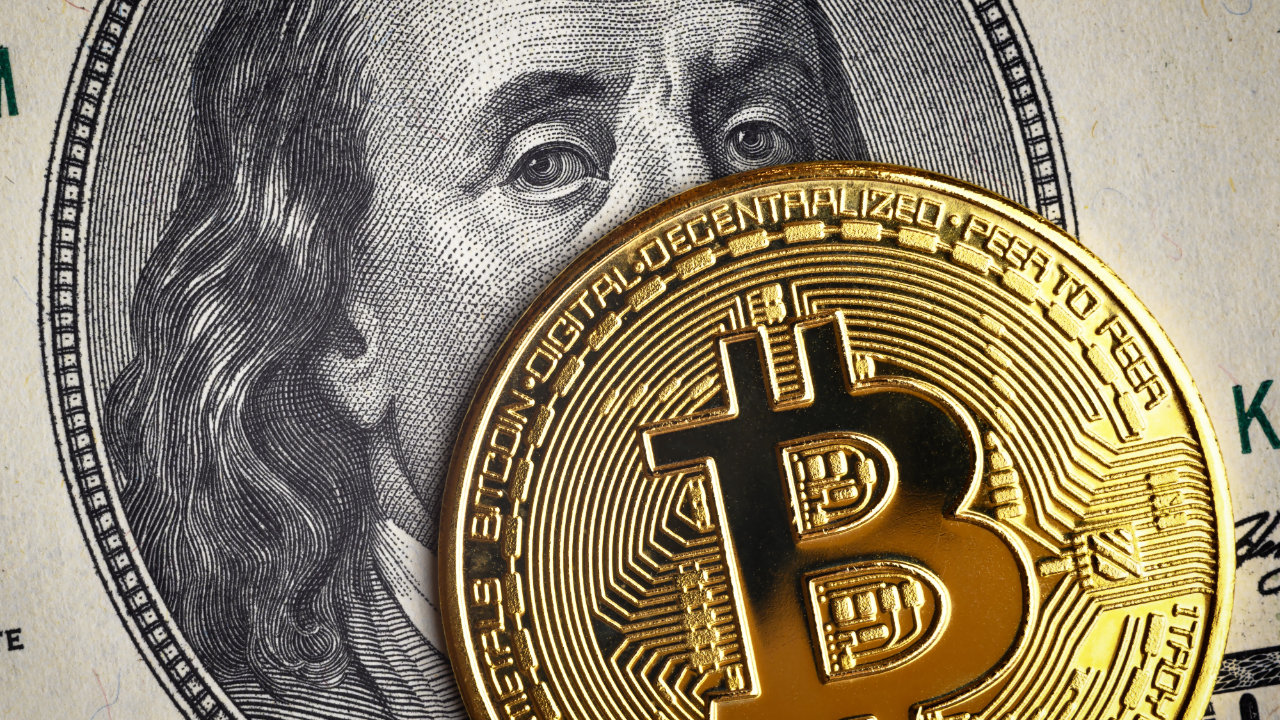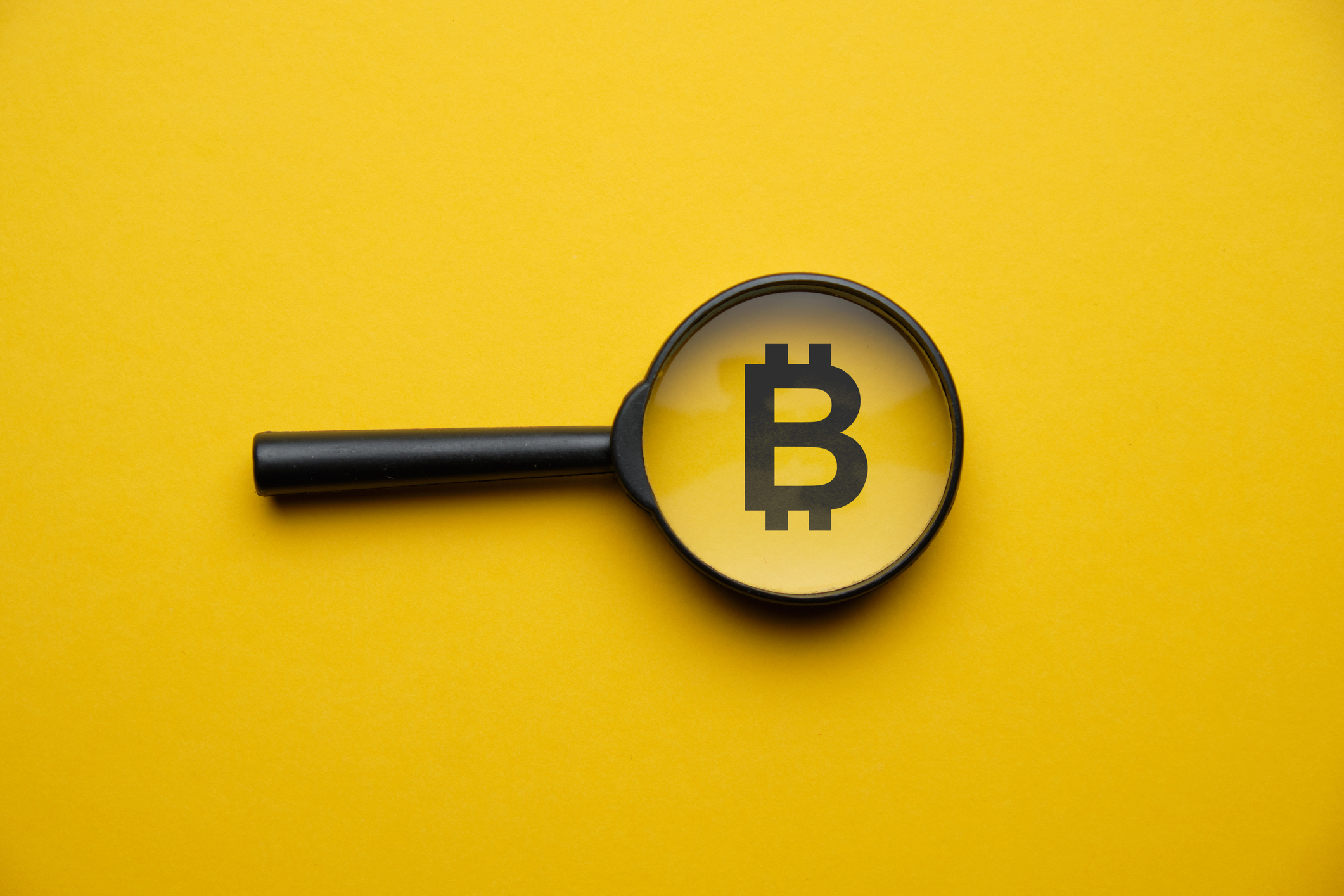Adoption of Bitcoin as a Goods and Services Alternative Has drastic Economic Consequences in 2022

Adoption of Bitcoin as a Goods and Services Alternative Has Economic Consequences
Bitcoin is a new financial asset involving a peer-to-peer electronic cash system that permits online payments directly from one side without interacting with any financial institution. Satoshi Nakamoto created it. As a result, bitcoin is unconnected to any regulating organisation or physical representation, unlike other financial assets. Its value is unaffected by fixed assets or the state of the economy. Instead, it is built on a secure algorithm that keeps track of all transactions. Bitcoin’s exchange potential is based on its low transaction costs, peer-to-peer system, and global and governmental architecture. However, the system’s opacity and lack of adoption of bitcoin within transaction schemes may deter consumers.
The tremendous expansion of bitcoins challenges politicians and policymakers since this digital currency serves as both money and a gateway to new business opportunities. Bitcoins have been a prominent topic of discussion in the media, governing organisations, and academic community due to rapidly rising inflation. Despite the media’s intense interest, bitcoin has not yet been subjected to a thorough theoretical examination, leaving room for more investigation. If bitcoin is primarily used to pay for goods and services, it will face stiff competition from fiat currencies like the US dollar. This will significantly impact fiat currencies and the central bank’s monetary policy.
If, on the other hand, this digital money is used for sensible investments, it will either compete fiercely with a vast number of other consumable assets, such as bonds, stocks, and commodities, or it will play a minor role. Using intraday data, the current study tries to determine bitcoin liquidity in comparison to current currencies and financial assets. The following testable hypotheses were developed to attain this goal: Is bitcoin a commodity or a currency? Are bitcoins mainly used as a form of payment for goods and services, or are they primarily utilised as a form of investment? What is bitcoin’s liquidity like?
Cryptocurrencies may also appeal to people interested in new technology and applications, whether for financial or other reasons. So far, what percentage of the population has purchased crypto-assets? Which financial options are available to those who have invested in crypto-assets? Are those individuals aware of the potential dangers? What role does trust in a financial institution or traditional money play in the desire for cryptocurrencies? If that’s the case, which institutions can be trusted? Which factors influence non-owners decision to accept a cryptocurrency? Owners, on average, have the more comprehensive financial knowledge and are more tolerant of possible risk than non-owners; owners do not consider distrust of banks or traditional currencies to be a deciding factor.
The expectation of profit and the belief that crypto-assets would have payment benefits are the most potent stimulus for ownership. The majority of adopters or would-be adopters believe in both. The tremendous volatility of cryptocurrencies and the risk of fraud or online theft have drastically reduced demand for them. Some experts are looking into the effects of hacker cyber-attacks and the resulting insecurity on the bitcoin market. Is bitcoin capable of shielding investors from market turbulence? A bear market created by the Covid-19 outbreak serves as a starting point for evaluating the characteristics of a bitcoin haven. From the day of entering into active negotiation with bitcoins, the bear market Covid-19 has suffered its first significant losses on the market.
This precipitous drop provides an opportunity to test some of bitcoins’ most frequently cited characteristics as a haven. Is bitcoin a means of exchanging a commodity? Or, to put it another way, what is the most effective use of its features now and in the future? Both the media and investors have been enthralled by Bitcoin. What is the source of this anxiety? Its expanding popularity, as well as its revolutionary features, simplicity, and transparency, have all contributed to its increased prominence.
On the other hand, Bitcoin poses significant difficulties and opportunities for policymakers, economists, entrepreneurs, and consumers. Cryptocurrencies are gaining users ‘ trust by making the entire history of transactions available to the public. The record of transactions keeps track of all bitcoin users’ behaviour patterns in exchange.
We analyse and describe the present studies examining the knowledge of cryptocurrency transactions using data mining. We divide the research into three categories: transaction tracking, blockchain address interconnection, customer behaviour analysis, and individual consumer research. According to Google Trends, the special attention devoted to bitcoins reflects the volatility and volume traded on the market in previous days. The cryptocurrency economy allows for the prediction of various new and detrimental innovations. Financial services using the blockchain system, in particular, shows that, according to Google Trends, the special attention devoted to bitcoins reflects the volatility and volume traded on the market in previous days. This website meticulously tracks the attention dedicated by misinformed individuals seeking more information about bitcoins using Google Trends.
On the other hand, well-informed investors who are well-versed in cryptocurrencies are unlikely to look for it on Google; instead, they will tweet about it. These tweets may include coverage comments about bitcoin, predictions about bitcoin’s future price development, or simply expressing a personal view. Unlike earlier research, this investigation focuses on Twitter tweets, widely used by well-informed investors, rather than Google Trends. Linear and non-linear Granger causality analyses show that the number of tweets significantly impacts the trade volume and realised volatility the next day. The current study adds to the expanding knowledge about bitcoins by examining the relationship between investor interest, bitcoin yields, trading volume, and realised volatility.
Bitcoin’s key characteristics

Bitcoin is digital money created using encryption techniques to control its availability and verify transactions. The currency is not controlled by a central bank. Bitcoin refers to a single unit of digital currency, but it can also refer to a collection of units. Bitcoin is derived from the encryption processes of a specific application that requires a significant amount of computing power.
People and businesses worldwide generate Bitcoins by using software to solve mathematical problems on computers in different parts of the world. A bitcoin currency is not developed or printed by anyone in particular. There is no way to purposefully manufacture more bitcoins without a central bank as other currencies do now in central banks worldwide.
Mining is the process of creating Bitcoin because computers are constantly solving mathematical problems, resulting in the presentation of encrypted keys that are utilised as currencies. In a networked environment, the computers are connected. The bitcoin exchange platform is formed by the distributed network, which allows individuals and organisations to conduct bulk or single bitcoin transactions.
A traditional currency is based on promissory notes, in which a person understands that depositing the currency entails receiving a promise of future payment. Gold or other acceptable valuables and money notes and coins can be used as payment. Bitcoin is built on a mathematical foundation.
As a result, it is impossible to physically possess bitcoins. After all, a bitcoin is only a record on a distributed ledger. The ledger is the blockchain, which contains all bitcoins mined. Volunteer networks of computers managed by real people share the blockchain. As a result, possessing a bitcoin implies the capacity to transfer record control. The rights are transferred to another individual after the transaction, and this is registered in the blockchain.
The Elliptic Curve Digital Signature Algorithm is used by Bitcoin. It’s a mechanism for a third party to authenticate each signature’s authenticity. The signer, on the other hand, retains the sole ability to produce a signature, and the data being signed is the transfer of ownership transaction. These features are incorporated into the programme development process to make it more user-friendly. End users only have to press transfer buttons and sign in or out, exactly like they would on a secure website like PayPal. The structure prevents a single party from directly manipulating transactions. It also ensures the integrity of the blockchain (Rykwalder par. 3-4).
Bitcoin’s benefits and drawbacks as a form of alternative payment for products and services

Bitcoins are used to make electronic purchases of products and services. Anyone who has implemented Bitcoin wallets can accept or issue bitcoin payments. As a result, permitting many users to have bitcoin wallets is the only way to ensure smooth transactions from the consumer’s perspective. They can be used in various payment modalities, including mobile and wireless payments.
Because the authentication and generating frameworks for mathematics rely on detached processes that must coordinate results in a way that would be impossible for a single party to control, Bitcoins cannot be manipulated in their generation technique. Because the Bitcoin programme is open source, anyone can study and fix faults and develop apps that extend its capabilities. As a result, many governments and enterprises can create new ways to improve the convenience of paying with bitcoins.
Setting up a bank account is difficult compared to creating a bitcoin address, which is simple. Furthermore, there are no fees associated with the procedure. As a result, bitcoin payment has the potential to increase significantly formal payment adoption. Users can have as many payment addresses as they choose, and names are not used as identifiers. Furthermore, the payment process is transparent because the blockchain records every transaction that has ever occurred on the network.
Government entities can publish their addresses, allowing anybody to see how many coins they have. Private individuals have access to all coins at a given address, but they cannot determine who owns them. The primary benefit is that sending bitcoin is unrestricted, regardless of the quantity or location. Furthermore, the transaction is promptly reflected in the Bitcoin payment networks because it is an electronic transaction.
Some of bitcoin’s problems are simply the positives reversed. For example, the anonymity of bitcoins makes it difficult for governments to follow money laundering activities, and bitcoins can be used to fund a variety of unlawful activities. It’s not as simple as freezing bank accounts to freeze bitcoin addresses.
Another issue with anonymity is that if someone acquires access to a bitcoin address and steals bitcoins by moving them, there is no way to reclaim the money. However, the perpetrator can be identified and forced to issue a refund by employing investigation skills. Bitcoins are limited in number, making them more valuable as demand rises.
Bitcoin’s Advantages

We can better comprehend how this top cryptocurrency gives possible benefits to its users now that we’ve seen a brief explanation of what bitcoin is.
- Users of Bitcoin have ultimate control over their money.
Traditional fiat currencies are subject to a number of limitations and risks. Banks, for example, are prone to booms and busts in the economy. These conditions can sometimes lead to bank runs and crashes, as they have in the past. This means that users’ funds are not completely under their control. Because Bitcoin’s price is unconnected to specific government acts, it protects user autonomy, at least in theory. This means that bitcoin users and owners have total control over their funds.
- Transactions in Bitcoin are anonymous.
Most internet transactions require data to identify the individual executing the trade. Transferring money from one person to another, for example, can only be done once both parties’ identifying information has been validated. Similarly, making an online transaction necessitates entering identifying information. Although the verification procedure helps avoid crime, it also puts an intermediary in command of the transaction, allowing them to regulate the distribution of services to specific parties.
Transactions in Bitcoin are anonymous. Although the transactions are not completely anonymous, they can only be traced back to a blockchain address. An individual can have several lessons for a single account, just as they have various usernames and passwords. The transaction does not necessitate the use of IP addresses or other identifying information.
- Peer-to-peer transactions are the foundation of Bitcoin.
Bitcoin is a peer-to-peer payment system, which means that anyone on the network can send and receive payments from anyone else on the network, anywhere in the world. Unless they transmit or receive bitcoin through a licenced exchange or institution, the participants in a transaction do not require authorization from an external source or authority.
- Bitcoin transactions are completely free of charge.
While traditional banking fees such as “maker” and “taker” fees, as well as occasional deposit and withdrawal fees, are standard among fiat currency exchanges, Bitcoin users are exempt from the litany of regular banking fees. This includes no account maintenance or minimum balance fees, no overdraft fees, and no returned deposit penalties, among other things.
- For international payments, Bitcoin transactions offer cheap transaction fees.
Fees and currency expenses are common in conventional wire transfers and international transactions. Bitcoin transactions are usually less expensive than bank transfers because there are no middlemen or governments involved. For travellers, this can be a considerable benefit. Bitcoin transfers are also instantaneous, eliminating the annoying wait times associated with traditional authorization procedures.
- Bitcoin transactions can be made on the go.
Bitcoin users can pay for their coins from anyplace they have Internet access, just like many other online payment systems. Customers will not need to go to a bank or a store to get products. No personal information is necessary to complete any purchase, unlike online payments done using US bank accounts or credit cards.
- Bitcoin transactions are final and cannot be reversed.
The immutability of Bitcoin’s blockchain is one of its features. As a result, blockchain transactions are irreversible and cannot be changed by a third party, such as a government or financial services organisation. A chargeback for bitcoin provided to a third party is likewise difficult. The recipient must send back the initial bitcoin in order to reverse a Bitcoin transaction.
- Bitcoin transactions are entirely safe.
Bitcoin is a virtual money that does not exist in the real world. Robbers will be unable to palm it off the bearer as a result. If hackers gain access to the wallet’s private keys, they can take a person’s bitcoin. However, with enough security, stealing bitcoin is technically impossible.
While cryptocurrency exchanges have been hacked in the past, Bitcoin’s exchange has remained unscathed. Transactions between two (or more) addresses are thus secure.
- Accessibility
Because users may send and receive bitcoins using only a smartphone or computer, Bitcoin is theoretically open to populations of users who do not have access to traditional banking systems, credit cards, or other kinds of payment.
Cryptocurrency’s Economic Impact

Suppose we want to talk about the economic effects of cryptocurrencies. In that case, we can say that, while transaction volumes and market prices are increasing, we can’t argue that they impact monetary policies because their adoption is still relatively low. Cryptocurrencies must be a substitute for the official currency to achieve the volume that will impact the financial markets. One country, however, has already adopted cryptocurrency as its official currency. El Salvador is the first country in the world to accept cryptocurrency as a payment method. Bitcoin may be used to purchase almost anything in El Salvador. On the other hand, other countries have been unable to enact cryptocurrency legislation since the use of cryptocurrencies differs by state.
When it comes to financial investing, cryptocurrencies have become the favoured option. Its goal is to ensure that in the financial markets, transactions can be completed without the use of shareholder or security issuer intermediaries, clearing institutions, intermediary institutions, or custodian organisations. Traditional financial assets cannot be purchased using official money from conventional institutions. It’s also not the same as buying cryptocurrencies. The fact that cryptocurrencies are taxed is good because you can invest in cryptocurrency and make a financial investment while being protected by the government.
Even though the impact is minor, we can notice the connection between cryptocurrencies and economics in various fields. For example, the potential use of bitcoin technology in education is fast rising. Other universities in Cyprus, Switzerland, the United States, and Germany have recently begun to accept cryptocurrencies as payment for instruction on their websites, and some online education institutions take Bitcoin. Travel businesses also get this money, and the ability to purchase aeroplane tickets, hotel reservations, auto rentals, and cruises have aided the system’s expansion.
Another industry in which bitcoins are widely used is housing and real estate. It is expected that investments in this field will expand as the number of companies accepting cryptocurrency payments grows.
Retail is another critical area that is expressing interest in cryptocurrencies. The first example is the website Overstock.com, which accepts Bitcoin and sells furniture-related services. Following that, numerous retail sales portals, including major merchants like Crate & Barrel, Nordstrom, and Whole Foods, will allow you to shop using cryptocurrencies.
Finally, cryptocurrency has given game publishers and creators new options. Some online games have already begun trading cryptocurrencies, with Project Big ORB being one of the better examples. This game allows you to transfer your in-game money into other assets, including cryptocurrencies, and then swap it for real money.
While cryptocurrency’s history is still in its infancy, the economic significance of Bitcoin and other currencies cannot be overlooked. In just a few years, a credible alternative to the global financial system has arisen. We don’t yet know if these external pressures will help or hurt the financial system or if they will disrupt the delicate balance between the many international powers. One thing is sure: it is currently impossible to stop the growth of cryptocurrencies. On the other side, they are more likely to be regulated and used more widely, first with individual citizens and progressing to governments worldwide.
Conclusion

Finally, bitcoin will facilitate international money transfers, limiting governments’ power to control monetary policy. The use of bitcoin will also eat away at a substantial source of revenue for forex brokers. Nonetheless, the benefits are noticeable.
When bitcoin is integrated into mobile money solutions and other types of convenience, it can be used by many people who don’t have good credit or different ways to get into formal banking institutions. The most appealing characteristics to look out for when bitcoin becomes a recognised currency are an overall reduction in transaction fees and the simplicity of bitcoin, which behaves similarly to cash. Furthermore, the potential uses are limitless, particularly for those in developing countries who are now unable to participate in the global economy.






